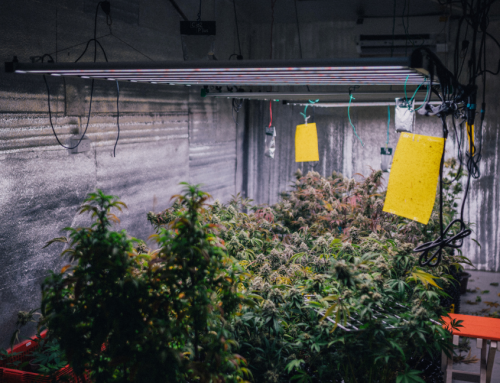Thailand is one of the world’s leading travel destinations, well-known for its variety of cultural uniqueness. The tourism industry is a vital sector of Thailand’s economy, and the Thai government has implemented various strategies and initiatives to manage and promote tourism effectively. So, buying a hotel or a resort in Thailand is one of the most popular investments for foreign investors. Keep in mind that purchasing a hotel in Thailand can be a complex process. It’s important to be well-prepared and informed before proceeding.
This article aims to share our experience as a law firm, including the due diligence, the ownership structure, the purchase agreement, and the transfer of ownership. It excludes guidance on the business side such as market analysis, or due diligence on the management team.
Five Essential Steps to Consider When Buying a Hotel in Thailand:
Step 1. Engage Professionals for Due Diligence:
Consider hiring professionals such as local lawyers, accountants, real estate agents, and hospitality consultants to assist you in conducting due diligence on the hotel and provide expert advice on the transaction.
Conduct thorough due diligence on the hotel you are interested in purchasing including reviewing financial records, legal documents, property conditions, and any existing contracts or agreements. It is advisable to hire a local lawyer who is familiar with property law in Thailand to assist you with the transaction. They can help you navigate the legal requirements and ensure a smooth and secure transaction.
It is similar to other countries when conducting due diligence on a hotel or a resort in Thailand, there are several key steps you can take to gather relevant information and assess the property effectively. Here are some tips on what to do:
1.1. Verify Legal Documents and Encumbrance:
Obtain and review the legal documents related to the property, including title deeds, leases, permits, licenses, and any other relevant ownership documents to ensure that the property is legitimate and free of legal issues. In addition, verification of its legal encumbrance is one of the most important steps such as a court case against the owner of the hotel whether a limited company or a natural person including its director, seizure for execution, bankruptcy, mortgage, long-term lease, etc. A local lawyer would be recommended.
1.2. Assess Financial Records of the Hotel:
Review the hotel’s financial records, including revenue statements, profit and loss statements, cash flow statements, and balance sheets. This will help you evaluate the hotel’s financial performance and profitability. A licensed auditor would be recommended.
1.3. Legal and Compliance Checks:
Verify that the hotel complies with relevant laws and regulations in Thailand, including zoning laws, building codes, health and safety standards, and environmental regulations to avoid any legal issues in the future. Also, evaluate the condition of the building, guest rooms, common areas, facilities, and amenities to ensure they meet local restrictions of the building, your expectations, and standards. A licensed Inspector engineer would be recommended.
By following these steps and conducting thorough due diligence on the hotel in Thailand, you can make an informed decision and minimize risks when investing in or acquiring a hotel property.
Step 2. Understanding Ownership Structure When Buying a Hotel in Thailand:
When buying a hotel in Thailand, it’s essential to understand the ownership structure options available to you as a foreign investor. Here are the common ownership structures that foreign investors typically use when buying a hotel in Thailand:
2.1. Hotel Freehold Ownership:
Foreigners are generally not allowed to own land in Thailand under freehold ownership. However, you may find a hotel’s land owned by 100% foreigners when promoted by BOI, additionally, BOI provides foreign investors with benefits and advantages such as employment of an expat or duty-free when importing necessary equipment you can’t find in Thailand.
Buying a hotel or a resort without BOI promotion, you may need to explore alternative ownership structures.
2.2. Hotel Leasehold Ownership:
Foreign investors can hold a leasehold interest in hotel properties in Thailand. This involves leasing the land or property for a specified period, typically up to 30 years. It’s crucial to carefully review the lease agreement terms and conditions to ensure that they are favorable and protect your interests.
2.3. Thai Limited Company:
Foreign investors can set up a Thai limited company to purchase and own a hotel property in Thailand. The company must have a majority Thai shareholding (51%) to comply with Thai Corporation laws. Purchasing all shares in a Thai company is an option.
It’s essential to work with legal advisors to establish the company structure and navigate the legal requirements for foreign ownership which can provide you full control by the article of association of the company by setting forth different voting rights and dividends of Thai and foreign shareholders.
2.4. Amity Treaty:
Investors from the United States can potentially benefit from the Treaty of Amity and Economic Relations between Thailand and the U.S., which allows U.S. citizens and companies to own and operate businesses in Thailand on the same basis as Thai nationals. This treaty provides certain advantages and exemptions for American investors in specific sectors, including the hotel industry.
2.5. Lease of Thai Company:
Another option is to lease a hotel property to gain control and management of the hotel operations without direct ownership of the hotel. This structure requires careful legal and financial due diligence to ensure the lease agreement safeguards your interests.
Step 3. Tax and Fees When Buying a Hotel in Thailand and Operating:
Be aware of the taxes and fees associated with purchasing a hotel or a resort in Thailand. This may include transfer fees, stamp duty, and special business tax. Also, taxes and fees associated with its operation. A local licensed auditor would be recommended.
Step 4. Negotiation and Purchase Agreement:
Once you have completed your due diligence and are satisfied with the property, ownership structure, and related costs, negotiate the terms of the purchase agreement. It should outline all the terms and conditions of the sale, including price, payment terms, and any contingencies.
Step 5. Transfer of Ownership:
All the said options when buying a hotel in Thailand come with a registration system, in the case of freehold or leasehold land, the transfer of ownership process in Thailand involves registering the sale with the Department of Lands, as well as BOI when needed. Setting up a new Thai company or buying all shares in a Thai company must be registered with the Department of Business Development. Your lawyer can guide you through this process and ensure that all legal requirements are met.
Conclusion of Buying a Hotel in Thailand
Before deciding on the ownership structure for buying a hotel in Thailand, it’s crucial to consult with a local lawyer, a local licensed auditor, and an inspector engineer. Understanding the legal requirements, tax implications, and risks associated with each ownership option. Thorough due diligence and proper structuring are keys to a successful hotel acquisition in Thailand as a foreign investor. If you are looking to purchase a hotel in Thailand, contact us, we can help.




